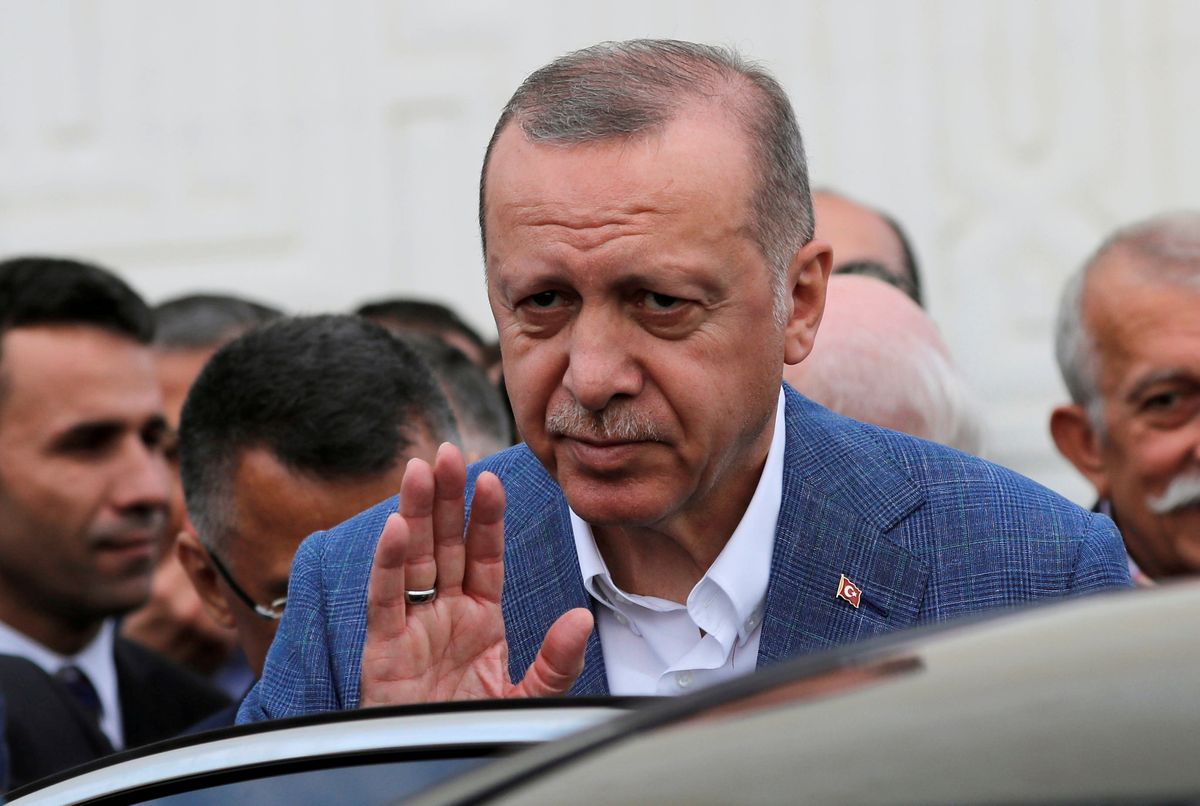Turkish President Recep Tayyip Erdogan has amassed much power in recent years, but on Sunday he showed some real political superpower alchemy: he turned a narrow defeat into a blowout loss.
Back in March, his preferred candidate, Binali Yildirim of Erdogan's ruling Justice and Development Party (AKP), lost the Istanbul mayoral election to opposition candidate Ekrem Imamoglu by just 13,000 votes in a city of 15 million people. After forcing through a (highly controversial) rerun of the vote, Erdogan watched his man lose again last Sunday—this time by 800,000 votes – a nine percentage point spread in the final tally.
To lose control of the symbolic and economic capital of Turkey, a city where Erdogan himself once served as mayor, is a heavy political blow for him personally and for his party. He had campaigned vigorously for Yildirim. Imamoglu, meanwhile, styled himself as an alternative to Erdogan's increasingly authoritarian, divisive, and economically ham-fisted politics. The final vote was at least in part a referendum on the president himself.
As the dust settles, there are a few points to consider:
A loss like this puts blood in the water around Erdogan, who has dominated his country's politics for the past 16 years. Opponents both within and outside the AKP will feel emboldened to challenge him more directly on a host of issues, including his handling of the economy and foreign policy. New opposition parties led by former Erdogan allies may now spring up.
You can bet Erdogan will make life hard for Imamoglu. Yildirim and Erdogan both accepted the outcome – with a margin like that how could they not? But Erdogan will want to keep Imamoglu from being too effective as mayor, lest that provide a platform for a national-level challenge. At the same time, Erdogan will have to tread carefully to avoid provoking protests from a city that has very clearly turned against him.
Turkish democracy is more resilient than it's sometimes made out to be. Yes, Erdogan has in recent years pushed his country in a more authoritarian direction – by clamping down on the courts and the media, and purging the bureaucracy of perceived political opponents. But as Imamoglu's win shows (twice!) -- Turkish party politics and elections remain plenty competitive and unpredictable.
The big question: As Erdogan looks towards 2023, the scheduled date for the next national elections (barring a coalition collapse that leads to an earlier ballot) will he moderate his politics at all in order to bounce back from the Istanbul loss? Or will the famously pugnacious president double down on his approach, reasoning that any concessions would simply encourage more challengers? A thwarted would-be autocrat is a dangerous thing.


















